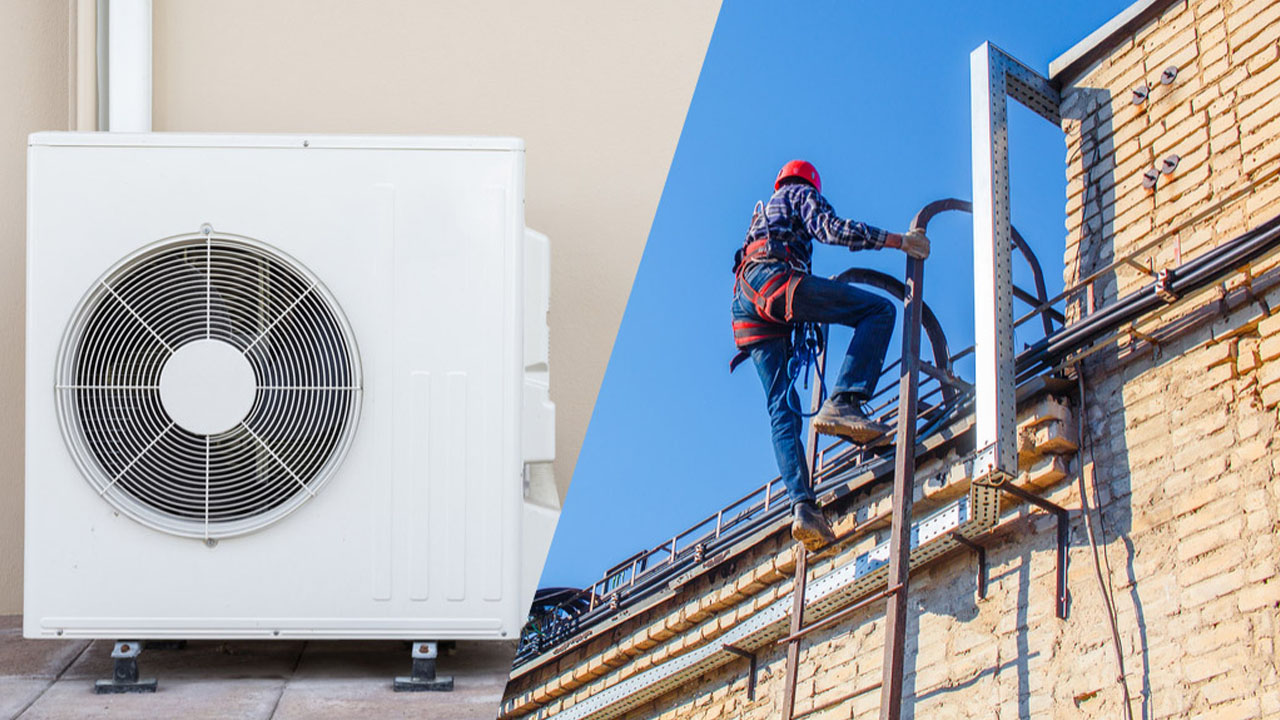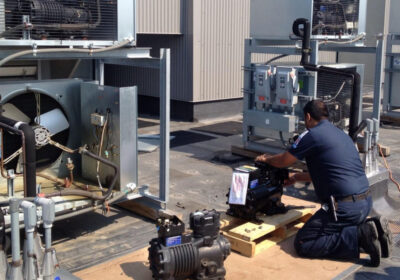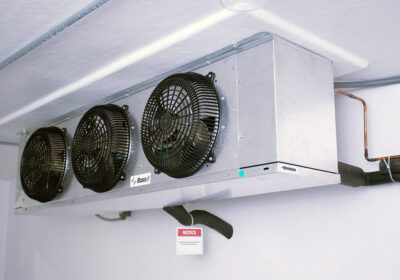Rooftop vs Indoor AC Units: Which Is Right for You?

If you’re running a business like a busy café in Muswell Hill or managing a supermarket in Enfield, we know one thing for sure, your air conditioning isn’t just for comfort, it’s crucial for keeping everyone happy and safe. So when it comes down to choosing between a Rooftop vs Indoor AC Units, the decision isn’t as simple as it sounds. It’s about balancing space, budget, energy savings, and practicality. Don’t worry though, we’re going to break it all down for you, step by step.
Let’s dive into the world of cooling systems and help you figure out what works best for your space, your staff, and your bottom line.
Before we compare, let’s start with what each one actually is.
.
What Is a Rooftop AC Unit?
A rooftop air conditioning unit, often seen in commercial properties around places like Finchley Central or Borehamwood, is just what it sounds like. It’s a central AC system installed on the roof. These systems usually come as “package units,” meaning all the major components (compressor, condenser, evaporator) are housed in one single cabinet on the roof.
Since it’s installed out of the way on top of your building, it saves indoor space, and keeps noisy equipment away from your customers and staff.
What Is an Indoor AC Unit?
Indoor units, on the other hand, are typically what we refer to as split systems, where the main blower and evaporator coil are housed indoors, and the condenser lives outside. These are the typical systems we see in many restaurants in North Finchley or older buildings in areas like Tottenham or Bakers Arms where rooftop access might be limited or impossible.
They’re more accessible for quick maintenance but take up usable interior real estate.
.
Breaking Down the Core Differences
Now that you know the basics, let’s look at what really sets these systems apart, and which residential or commercial settings they’re best suited for.
Installation Location and Space Considerations
Have limited interior space? Then rooftop systems are your new best friend.
Rooftop AC systems keep your commercial space clear, making them ideal for kitchen-heavy locations like pizzerias in Bounds Green or butcher shops in Whetstone. You won’t have bulky equipment inside taking up space or interrupting the layout.
On the flip side, indoor units are great for buildings that can’t handle roof installations, think converted shops or schools in Wood Green or Hornsey.
Maintenance and Accessibility
Here’s the deal: indoor units are easier to reach. So for routine checks or emergency repair jobs, especially late night ones, it’s faster and safer for a technician to access these units, especially during poor weather.
Rooftop units? Not so much. Think climbing ladders and dealing with rain or wind. But don’t let that steer you away too fast, they often need attention less frequently due to their design.
At D&A Repair, we service both types all across Greater London, so whichever you choose, we’ve got the tools and the know-how to handle it.
Initial Installation Costs vs. Long-Term Value
Rooftop units typically come with a bigger first-time installation price tag. You’re paying for equipment, cranes, and pro installers who know what they’re doing.
But here’s the kicker: because they’re “packaged,” these units often last longer and need fewer parts replaced over time. That means less downtime and fewer panicked calls when your freezer aisle starts heating up at 3 PM on a Saturday.
Indoor systems can be less expensive upfront but may require more long-term servicing if your space isn’t ideal or your team forgets to keep up with basic maintenance.
Noise Levels and Indoor Comfort
Indoor units are, well, indoors. That means more noise inside, fans running, air whooshing, and condensers humming. If you run a quiet office, spa, or small café in Elstree or Colindale, this might become noticeable.
Rooftop systems are far removed from customer spaces. With these, your staff and guests can report on how good your coffee is, not how noisy your AC sounds.
Energy Efficiency – Which Saves More Over Time?
While both can be energy-efficient, rooftop units are often better in larger spaces because one system can cool multiple zones. They’re also exposed to more airflow, allowing hot air to dissipate faster.
Indoor systems in smaller or low-traffic environments might provide better efficiency due to tighter insulation and zoning. The key here is matching the unit size to usage, something we at D&A Repair help customers with every day from Edgware to Cheshunt.
.
Which One Is Better for Your Business Location?
Your building, your business type, and even your local weather patterns play a huge role in answering this question.
Rooftop Units for Commercial Properties
Rooftop units are especially popular with warehouses, supermarkets, and commercial kitchens in areas like Potters Bar, Kingsbury, and Bushey. Why? Because they:
- Free up indoor space.
- Reduce indoor noise.
- Centralize your equipment to one easy-to-manage location.
Indoor Units for Smaller or Unique Spaces
Working out of a small space in Golders Green or a historic property in High Barnet that can’t support equipment on the roof? Indoor systems are likely your best bet.
They’re flexible, easier to service, and don’t need significant structural support from the building.
Weather Resistance and Environmental Exposure
One drawback of rooftop systems? They face the elements. Rain, snow, heat waves, you name it. While they’re built tough, extreme weather downs in Waltham Cross or sudden cold spikes in Mill Hill can take a toll.
Indoor systems are more protected but might face challenges with airflow, compact installations, or building-specific constraints.
.
Considering HVAC vs. Traditional AC Setups
Let’s get into this HVAC vs. Traditional AC talk, because picking the right system isn’t just about location, it’s about your goals.
What’s the Difference Between HVAC and Traditional AC?
HVAC stands for Heating, Ventilation, and Air Conditioning. It’s an all-in-one system that does more than just cool you down. Traditional AC, on the other hand, often sticks to cooling only, or pairs with a separate heating system.
So if you’re in an area like Stanmore, where winters get chilly, HVAC might be the smarter choice. If you already have heating and just need summer cooling, go traditional.
Compatibility with Rooftop or Indoor Units
Great news: both HVAC and traditional AC options come in both rooftop and indoor varieties. It’s more about your building’s needs and how you plan to maintain your system, rather than the cooling method alone.
.
D&A Repair’s Take: Helping You Make the Right Choice
At D&A Repair, we’ve been in basements, rooftops, and everywhere in between. Here’s what we’ve found.
Common Problems We See in Rooftop Units
- Weather damage from wind and rain.
- Blocked intakes due to nearby trees or construction debris.
- Long delays in service due to difficult access.
Issues Found in Indoor AC Systems During Repair
- Water leaks from poor drainage.
- Mold from neglected filters.
- Airflow problems from poorly placed units.
Insights from Our Work Across London Neighborhoods
In denser parts like Tottenham or Brent Cross, indoor systems fit better with the architecture. In wide, standalone buildings in Borehamwood or Cuffley? Rooftop units win every time.
We work fast. We know the area. Honestly, we’ve probably done work on your street. Our team is local and reliable, with affordable prices and emergency support anytime.
.
Final Thoughts: How to Choose What’s Right for You
So after reading through all this, ask yourself:
- Do I have the roof space and structural strength for a rooftop unit?
- Do I want one system for everything (HVAC) or just cooling?
- Is interior noise a dealbreaker?
- What’s my budget for installation and long-term maintenance?
Still unsure? That’s totally fine, we specialize in helping businesses just like yours figure it all out. Whether you’re running a primary school with limited access in Friern Barnet or managing a large supermarket in Enfield, we craft our solutions to fit, not overwhelm.
.
Contact D&A Repair for Fast, Fair, and Friendly Service
Still have questions? We’re only a call or email away. Based locally, we proudly serve all neighborhoods we mentioned above, and probably a few more! Our team is fully licensed, booked around your schedule, and always transparent about pricing. Book now and get your cooling system working its best, before things heat up.




.
FAQs
1. Can a rooftop unit save me money in the long run?
Yes. While installation might be more expensive upfront, rooftop units often last longer and have fewer external components to maintain.
2. Is indoor AC better for residential settings?
For most homes or small businesses, indoor units are a smart choice due to lower installation costs and easy maintenance access.
3. How long does a rooftop AC unit typically last?
On average, about 15-20 years with proper maintenance. D&A Repair offers tune-up services to help extend your unit’s life.
4. Do I need planning permission for a rooftop AC unit in London?
Possibly. It depends on your building’s regulations. We help you assess whether permits are needed when you book with us.
5. What sets D&A Repair apart from other AC service companies?
We’re local, fast, and affordable. We understand London buildings and business needs. Plus, our team shows up on time, every time, with no hidden fees.




Leave a Reply